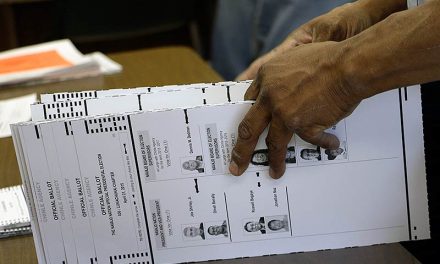
Bill introduced to protect wearing of traditional regalia during graduation introduced
WINDOW ROCK
A bill introduced in the New Mexico Legislature aims to protect Indigenous students’ right to wear traditional regalia at graduation ceremonies and ensure students with medical conditions can carry and self-administer prescribed medication.
Senate Bill 163, sponsored by Sen. Benny Shendo Jr. and Rep. D. Wonda Johnson, would allow public school students who are enrolled or eligible for enrollment in federally recognized Native American nations, tribes, and Pueblos to wear tribal regalia at public school events, including graduation. The bill would also require schools to permit students with asthma or severe allergies to carry and use emergency medication.
If passed, the law would reinforce protections for Native students and ensure health accommodations for children with medical needs in New Mexico’s schools.
New Mexico has 23 federally recognized tribes, nations, and Pueblos. Many Native students see graduation as a moment to honor their heritage, families, and communities.
The bill states that local school boards and charter school governing bodies cannot stop students from wearing tribal regalia or objects of cultural significance with their caps and gowns. It also allows them to wear traditional footwear or clothing under their gowns.
SB 163 also seeks to protect students with medical conditions by allowing them to carry and use emergency medication at school. The bill applies to students with asthma or severe allergies who need immediate access to inhalers or epinephrine auto-injectors.
Under the bill, students would be allowed to carry their prescribed medication if a licensed health care provider has taught them how to use it. They must also show their ability to use the medication to both the health care provider and a school nurse. A parent or guardian would need to submit a treatment plan to the school.
Schools would be required to keep backup medication in an accessible location in case of emergencies. Employees who give backup medication in good faith would be protected from civil lawsuits.
The bill would also strengthen anti-discrimination policies in public and charter schools. It states that schools cannot discriminate against students based on race, religion, culture, hairstyle, or clothing choices.
It defines tribal regalia as traditional dress or objects of religious or cultural significance. These include tribal symbols, jewelry, beading, and feathers. It also clarifies protections for cultural and religious headdresses and natural hairstyles, such as braids, locks, twists, and afros.
In 2021, Arizona passed a similar law, House Bill 2705. Gov. Doug Ducey signed the bill on April 20, 2021, ensuring that school districts and charter schools cannot prevent Native students from wearing tribal regalia at graduation.
HB 2705 applies to students who are members of federally recognized tribes or eligible for tribal enrollment. The law specifically allows eagle feathers and eagle plumes to be worn, recognizing their cultural and spiritual importance.
The Arizona Department of Education supported the law and credited former Rep. Arlando Teller and Rep. Jasmine Blackwater-Nygren for their efforts in passing the bill. The department’s Office of Indian Education stated the law was important because graduation is a significant milestone in a student’s life, and students should be able to honor their culture without restrictions.
The bill is now being considered by the New Mexico Legislature. Supporters expect strong backing from lawmakers who support Native rights and student health protections.
If passed, SB 163 would make sure Indigenous students in New Mexico can wear their regalia at graduation without issue. It would also guarantee that students with medical conditions have access to life-saving medication while at school.








 Highway 264,
Highway 264, I-40, WB @ Winslow
I-40, WB @ Winslow